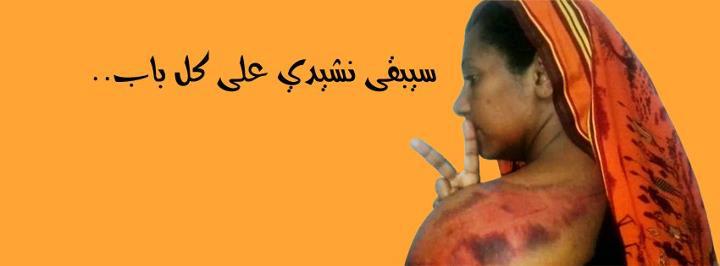Jeffrey
Gettleman's article called War in Sudan? Not Where the Oil Wealth Flows and a year later, Rob
Crilly's Boom belies Sudan’s pariah status have 2 things in common
1- They give the impression that the Sudanese living in Sudan and most specifically Khartoum don't give a damn about
Darfur and the plight of
Darfurians while the whole world is campaigning, protesting and
generously donating thousands of dollars.
2- The US-sponsored international sanctions on Sudan are not doing much so (the international community might as well increase the sanctions or ban all companies from doing business in Sudan).
Why the sanctions are not coolFirst of all, increasing the
sanctions on Sudan are not going to make the Sudanese government "surrender" and stop killing innocent civilians. In the 1990's, when Sudan didn't export any oil, they still managed to fund the holy war on the "
kuffar". There are many generous donors who supported our government for many years. Currently, things are different. We export oil. Our economy grows about 10% every year making it one of the fastest-growing economies in Africa. Sudan is a popular investment destination. New hotels are being built every day( The manager of
Rotana hotel said that another one is being built).
The development ,economic improvement and investments are benefiting the people more than the government because they are creating new
employment opportunities( we desperately needed that!)Isn't it a good thing?
Three years ago, we only had a couple of small boring channels and
of course the
disappointing Sudan
tv. Now there are
at least 3 new channels promoting investment in Sudan and creating a very attractive image of the " New Sudan" or
at least this is what they call it.
Not to mention the
availability of all kinds of goods in
supermarkets, cafes and even international brands such as
Espirit.
Oil and self-interestIt doesn't take a genius to figure out that in the next 50 years, oil will be very precious.
John Ghazvinian(author of untapped: the scramble for Africa's oil) pointed out that oil will make Africa the new Middle East, the new Saudi Arabia.
If you read Untapped: The scramble for Africa's oil, you are going to know that the US, other western powers and China are very very interested in oil-producing African countries. The US is serious about stabilizing the gulf of guinea region to guarantee a steady oil supply. The Middle East is on fire now while Africa is cooling down.
Although the civil societies in Japan (just an example) are concerned about the innocent civilians dying in
Darfur , the Japanese
government wants more oil from Sudan now (they just signed an agreement).
If the government of
Equatorial guinea is a dictatorship then why is America its number one costumer when it comes to oil exports?
Self-interest is important however, oil is more important. Countries are willing to pay
alot of money to get oil, secure and stabilize the region they get their oil from and most importantly, overlook brutal governments and human rights abuses for it.
Why are Sudanese living in Khartoum portrayed in this negative way?The title of
Gettleman's article really irritated me. His article starts with a picture and this is written below it "As one of the world’s worst atrocities unfolds in
Darfur, some 600 miles to the west, young women enjoy the good life at the Ozone
Café in Khartoum, including ice cream and outdoor air-conditioning".
A couple of young girls are having a nice time at the Ozone cafe...so? Did you even ask them how they feel about
Darfur?
Last time I checked, many Sudanese people wanted
Darfur to stop and wanted the displaced people to go home. My neighbours back home rented their house to an organization aiming at helping
Darfurians in Khartoum etc..
I really don't think people in Khartoum should stay home and be depressed. Speaking of depression, I really think we spent most of the 1990's being depressed.
I'm glad people in different parts of this world are concerned about
Darfur (although I find it funny how many people always say we were silent when Rwanda happened ,let's stop
Darfur..feeling guilty are we now?)
Funny thingIt's funny how a year after
Gettleman's article was published, another journalist called Rob
Crilly travelled to Khartoum to write about the same issue!
Seriously, both journalists failed to point out something very important..actually, this is my own personal observation:S
China can give Sudan all the money in the world and Sudan can become one of the largest oil-exporters in the world but this doesn't make China or any other country buying oil from Sudan or engaging in a mutually-beneficial relationship with Sudan a "bad" country. Why do people care about the money China gives to Sudan for its oil? Why do they keep calling china's
Olympics "genocide
Olympics"? Why are other western and eastern countries banned when they try to invest in Sudan?
PEOPLE SHOULDN'T CARE ABOUT WHO GIVES SUDAN MONEY, THEY SHOULD CARE ABOUT HOW THE SUDANESE GOVERNMENT USES THIS MONEY!
I said it! Yes! loud and clear.
It's really not China's problem that
Beshbesh's government is using it's money to buy arms and train its soldiers.
I'm glad Khartoum is booming or whatever.... however, I'm hating the
democracy of
hypocrisy in this world.
articles:-
http://www.nytimes.com/2006/10/24/world/africa/24sudan.html?ex=1319342400&en=9fa37c1bffd09db2&ei=5088&partner=rssnyt&emc=rsshttp://www.timesonline.co.uk/tol/news/world/africa/article2436998.ece















